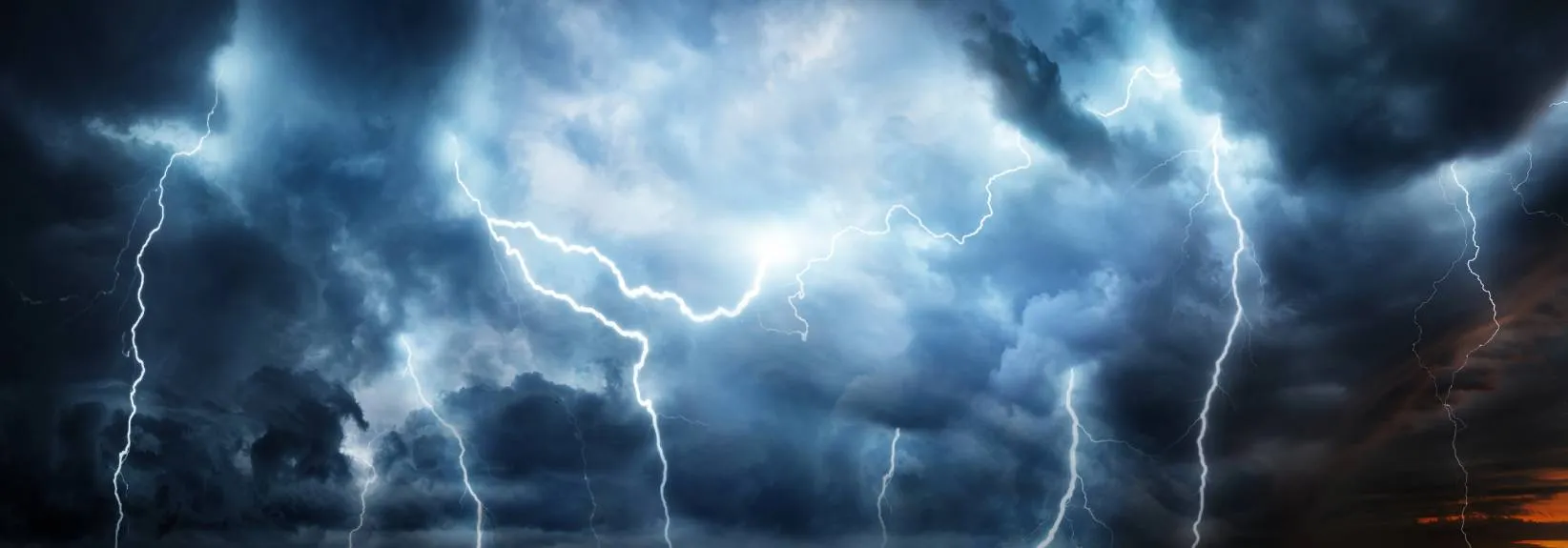How Severe Weather Can Affect Your Air Conditioner
When summer reaches its peak, your air conditioner may work double-time to keep your Winnipeg home cool and comfortable. While many summer days are warm and beautiful, most areas of the country are no stranger to dangerous weather. Stormy conditions, and even days with extreme heat and humidity, can impact your air conditioner’s performance, efficiency and longevity. Discover the many ways weather can influence your AC and how to protect it.
Impact of Weather on Your Air Conditioner
Performance
Several different weather conditions may change how well your air conditioning unit performs. On especially hot days, the AC must work harder to achieve the set temperature. The larger workload could lead to an overloaded system, causing a breakdown.
Extreme humidity also creates a problem. While air conditioners are designed to dehumidify the air as they cool it, excessive humidity can strain the system. This may result in reduced performance and a home that your AC isn’t able to cool as well.
Efficiency
Periods of very hot weather force your air conditioner to run constantly, resulting in a spike in energy bills. If a home’s HVAC system is not designed or put in properly, it may not be able to meet the cooling demand under these conditions.
Conversely, the condensing unit is at risk if used in subfreezing conditions. Attempting to use the AC when the outdoor unit is covered in ice could damage the compressor, decreasing efficiency and possibly ruining your cooling system.
Weather-Induced Damage
Heavy rain, wind, hail or snow can damage the outdoor AC unit. Debris from storms can obstruct airflow, reduce system efficiency or hammer away at the metal. If water floods the system, corrosion or short-circuiting could occur, shortening the life of your system.
Protecting Your Air Conditioner from Severe Weather
The outdoor AC unit is sensitive to severe weather, but you can take steps to secure it. Here’s how to save your air conditioner from harsh incoming weather:
- Install your air conditioner in the shade: A shaded outdoor unit doesn’t have to run as vigorously, improving efficiency and extending the unit’s life span. If possible, put the air conditioning on the north or east side of your home or in another place that is shaded during the hot afternoon.
- Invest in an air conditioner cover: AC covers are a protective shield. During the cooler months or when severe weather is expected, consider covering your air conditioner to protect it from flying debris, falling ice and heavy snowfall. Just make sure you don’t attempt to run the air conditioner while the outdoor unit is covered.
- Maintain your HVAC system regularly: Scheduled maintenance is a proactive measure to enhance your AC unit’s operating efficiency. After all, a tuned-up air conditioner is less likely to buckle under the stress of high temperatures or humidity. Regular cleaning, filter replacement and detailed inspections ensure your system stays in top-notch condition and is ready to face any weather.
- Install a surge protector: Power surges are a common byproduct of storms that can harm your AC unit’s electrical elements. Installing a surge protector adds an extra level of defense. Alternatively, you can turn off your AC during severe weather by flipping the circuit breaker.
- Secure and elevate your outdoor unit: Strong winds can cause the outdoor cooling unit to tip or move. Likewise, rising water can flow through the internal components. Ensure your outdoor unit is correctly secured and raised on bricks or platforms designed to protect it from wind and water damage.
- Clear your yard of debris: Always keep the space around your air conditioner clear of loose objects that could become dangerous projectiles. This helps avoid denting and other physical damage from severe weather.
Checking on Your AC After a Storm
In the aftermath of very bad weather, follow these steps to ensure your air conditioner is able to continue to function safety:
- Conduct a visual inspection: When the sky clears, go outdoors and inspect your unit. Look for issues such as dents, exposed wires or an off-kilter base.
- Clear debris: Clear away any leaves, tree limbs and other debris to improve airflow and efficiency.
- Inspect for water damage: If your area has experienced flooding, check for water damage. If you believe water has entered the unit, it’s best not to turn it on until you have it professionally evaluated.
- Schedule a prompt repair: In the case of storm damage, don’t put off air conditioning repair, or you risk increased energy costs, a reduced life span or total system disaster.
Contact Service Experts Heating & Air Conditioning
No one wants to be impacted by severe weather, but it’s crucial to be prepared and understand how to recover. At Service Experts Heating & Air Conditioning, we offer post-storm inspections and repairs to ensure your air conditioning system runs safely and efficiently. Our staff can handle all your AC service needs in Winnipeg, including maintenance, repair and replacement. Don’t let severe weather alter your home’s comfort—contact a Service Experts office near you for more information or to schedule a visit today.



